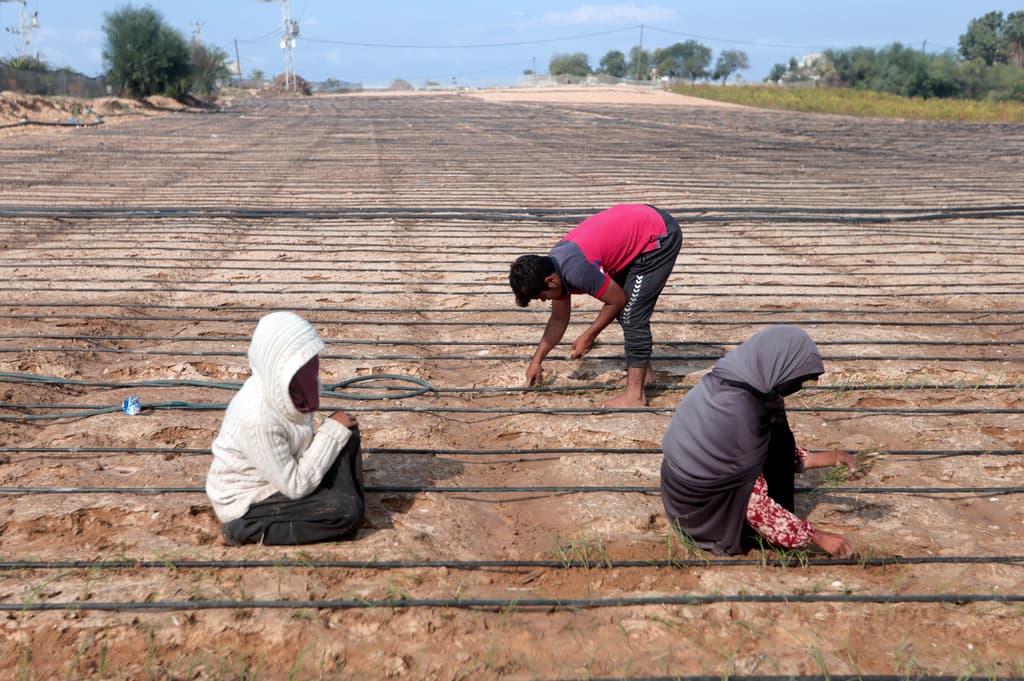This time of year, Gazaremsan's fields usually bloom. But green fields have been replaced by dry earth mounds. The war has hollowed out the Gazans' ability to feed their own mouths – and destroyed a million-dollar export.
Now we have neither work nor income, says farmer Ibrahim Dheir.
Nedal Abu Jazar holds an uprooted tomato plant in his hand. The tracks from the Israeli tank run straight across his plantation in al-Mawasi, designated by Israel as a so-called "humanitarian zone".
Look at this destruction, he tells news agency AFP.
Advertisement
Across the field lie scattered pieces of metal and white plastic sheeting – the remains of Jazar's greenhouse, destroyed when Israeli forces attacked in June.
He is not alone. Around 57 percent of Gaza's agricultural land has been destroyed since the start of the war, according to a UN calculation. For the isolated strip's population – of which one-fifth is estimated to face starvation, according to UN-backed IPC – it means catastrophe.
Leveled to the ground
In 2022, Gazaremsan exported products worth around 470 million kronor, mainly to the West Bank and Israel, according to the UN's Food and Agriculture Organization (FAO). Strawberries and tomatoes accounted for around 60 percent of the total export. That figure fell to zero after Hamas' terror attack on Israel on October 7.
In Beit Lahiya, known for its strawberry fields, Israeli bulldozers have transformed lush fields into dry clay. Before the war, the plantations employed thousands of Palestinians, writes Qatar-based Al Jazeera in a survey of how the war has affected Gaza's agricultural sector. Now the land lies barren.
Areas around Gaza City, Dayr al-Balah, and Khan Yunis were once blooming with olives, dates, eggplants, and citrus fruits. Now, satellite images show how trees and crops have been leveled to the ground by heavy machinery. According to experts, the ton-heavy Israeli bombs have likely caused damage to Gaza's fertile soil for many years to come.
Without income
Near Rafah, 34-year-old farmer Ibrahim Dheir's land has been devastated, as has his equipment. Israeli tanks destroyed the fruit trees and fields with spinach, pumpkin, and zucchini, he tells AFP.
We used to rely on farming for our livelihood. Now we have neither work nor income.
Even livestock breeders are hard hit. In February, FAO estimated that hundreds of chicken and sheep farmers in Gaza had their farms completely or partially destroyed in the war.
Israel's military claims not to intentionally harm agricultural land. In a statement to AFP, they claim that Hamas extremists often hide among fruit orchards and farms.
Gazaremsan's export of fruits and vegetables in 2022, in millions of dollars:
Strawberries: 14.3
Tomatoes: 12.5
Cucumber: 6.7
Eggplant: 4
Paprika: 2.7
Zucchini: 1.4
Chili: 1.15
Source: FAO






